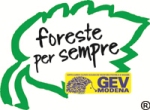Thanks to the funding received from donors and institutions, the organization acquires portions of tropical forest to protect or regenerate. However, it does not retain ownership of these lands; instead, they are entrusted to local associations that are partners in these projects.
Local associations in collaboration with the institutions manage the areas to be protected by transforming them into parks and conservation areas, guaranteeing sustainable development to the populations that live there.

Recognizes the environmental services provided by forests. (See the pages dedicated to forests and PSA )
Enter into agreements with owners, managers, local communities and interested Ministerial Bodies that guarantee the continuity and permanence of the project for at least fifty years.
It encourages sustainable development actions (ecotourism, craftsmanship, equal opportunities, etc.) and the aggregation of local populations into associative forms.
Periodically, groups of Ecological Guards and Environmental Technicians go to the protected areas to verify the status of projects. Performing supervisory and monitoring functions.
The projects meet the requirements of:
- additionality (the project would not have been possible without the intervention of Foreste per Sempre)
- leakage (Problems related to that territory are not moved to other areas but solved. Ex: to avoid cutting down trees, deforestation is not allowed elsewhere, but other opportunities are created for locals.)
- protection of biodiversity and restoration of the original conditions of the forests (reforestation projects intended for monocultures and industrial plantations are not considered. The so-called green deserts, even if admitted by the UNFCCC.);
- lowest possible release of CO2 equivalent due to forest management works. The replaced trees are used for long-lasting works. (Ex: Non-native or invasive species are harvested and processed to produce furniture or equipment, thus maintaining as much carbon as possible.)
- improving the living conditions of the populations living in the project area, through eco-sustainable activities that lead to self-sufficiency and awareness, with particular attention to children’s and women’s issues.
- maximum investment in the project of the funds raised (currently 100% of the contributions and proceeds from fundraising are invested in the project. FpS uses voluntary and unpaid collaborations. Management costs do not affect the projects. E.g.: travel costs for monitoring and verification missions are self-financed by the participating volunteers


